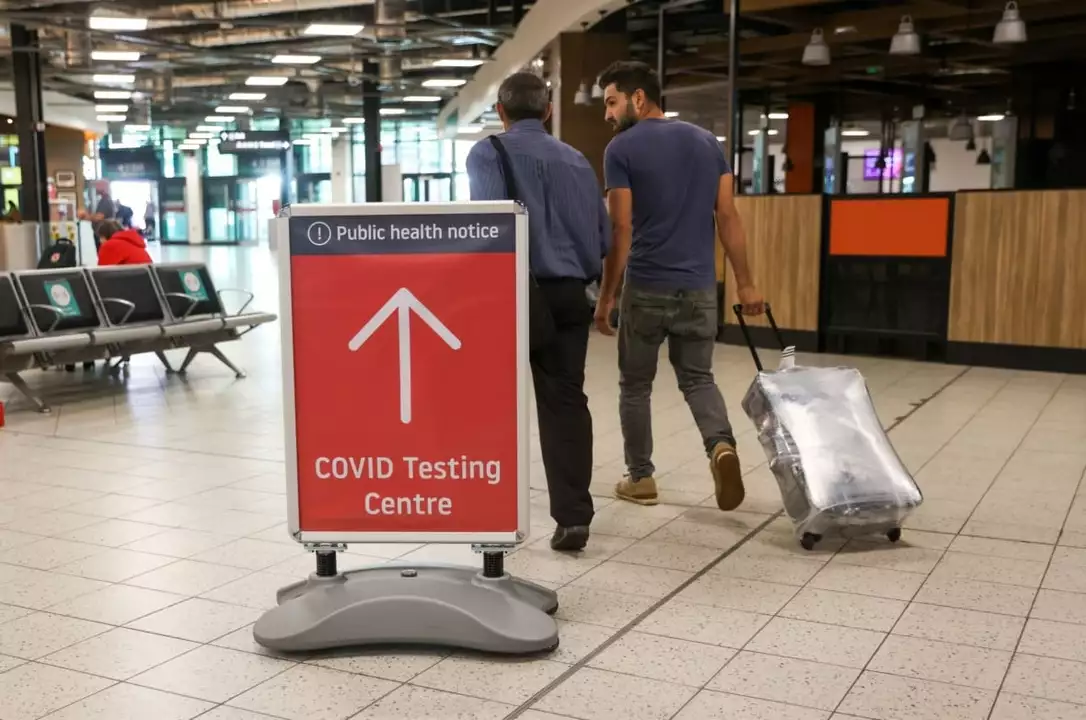
Introduction to Covid-19 and the Travel Industry
The COVID-19 pandemic has had an unprecedented impact on the global travel industry. Businesses, travelers, and governments have had to adapt to the new normal, where health and safety have become the top priorities. In this article, we will explore the various ways the travel industry has adapted to the ongoing pandemic, ensuring that it continues to thrive while keeping people safe.
Emphasis on Health and Safety Measures
One of the most significant changes brought about by the pandemic is the increased emphasis on health and safety measures. Airlines and hotels have introduced rigorous cleaning protocols to minimize the risk of infection. This includes the use of high-grade disinfectants, increased frequency of cleaning, and the installation of hand sanitizing stations throughout their facilities. Many businesses have also implemented temperature checks and health screenings for both employees and guests, to ensure that everyone entering the premises is in good health.
Flexible Cancellation and Rebooking Policies
With the unpredictable nature of the pandemic, many travel companies have introduced flexible cancellation and rebooking policies. This allows customers to make changes to their travel plans without incurring hefty fees. These policies have been a welcome relief for travelers, providing them with the confidence to book trips knowing that they can easily change their plans should the need arise.
Digital Health Passports and Certificates
As countries reopen their borders, many have implemented digital health passports and certificates to verify travelers' COVID-19 status. These digital documents show whether a traveler has been vaccinated, tested negative for the virus, or recovered from a previous infection. This has made it easier for travelers to navigate the complex web of entry requirements while providing governments with a reliable way to verify the health status of incoming visitors.
Adoption of Contactless Technology
The pandemic has accelerated the adoption of contactless technology in the travel industry. From contactless check-in and payment options to digital menus and room keys, businesses are finding innovative ways to minimize physical contact between staff and guests. This not only helps to reduce the risk of infection but also improves the overall efficiency of operations.
Reimagining Travel Experiences
With social distancing and safety measures in place, the travel industry has had to reimagine the way it delivers experiences to customers. Many attractions and tour operators have introduced timed entry and limited capacity to ensure that guests can enjoy their visit while maintaining a safe distance from others. Virtual and augmented reality experiences have also gained popularity, allowing people to explore new destinations without leaving the comfort of their homes.
Embracing Domestic and Outdoor Tourism
As international travel restrictions continue to be in place, many travelers have turned their attention to domestic and outdoor tourism. The pandemic has sparked a newfound appreciation for local attractions, national parks, and outdoor activities. This shift in consumer preferences has encouraged the travel industry to invest in promoting and developing domestic destinations and outdoor experiences.
Changes in Business Travel
Business travel has been dramatically impacted by the pandemic, with many companies switching to remote work and virtual meetings. This has led to a decline in demand for corporate travel services. However, the industry has adapted by offering flexible workspaces, extended stay options, and business-focused amenities to cater to the needs of remote workers and digital nomads.
Increased Collaboration and Communication
Covid-19 has highlighted the importance of collaboration and communication within the travel industry. Airlines, hotels, and governments have had to work together to develop and implement safety protocols, entry requirements, and quarantine measures. This increased collaboration has fostered a sense of unity within the industry, as businesses work towards a common goal of ensuring safe and enjoyable experiences for travelers.
Preparing for the Future of Travel
As the world continues to adapt to the pandemic, the travel industry is constantly evolving to meet the needs of its customers. From embracing new technology to reimagining experiences, the industry is demonstrating remarkable resilience and innovation in the face of adversity. While the future of travel remains uncertain, one thing is clear: the industry will continue to adapt and thrive, ensuring that people can continue to explore the world safely and enjoyably.